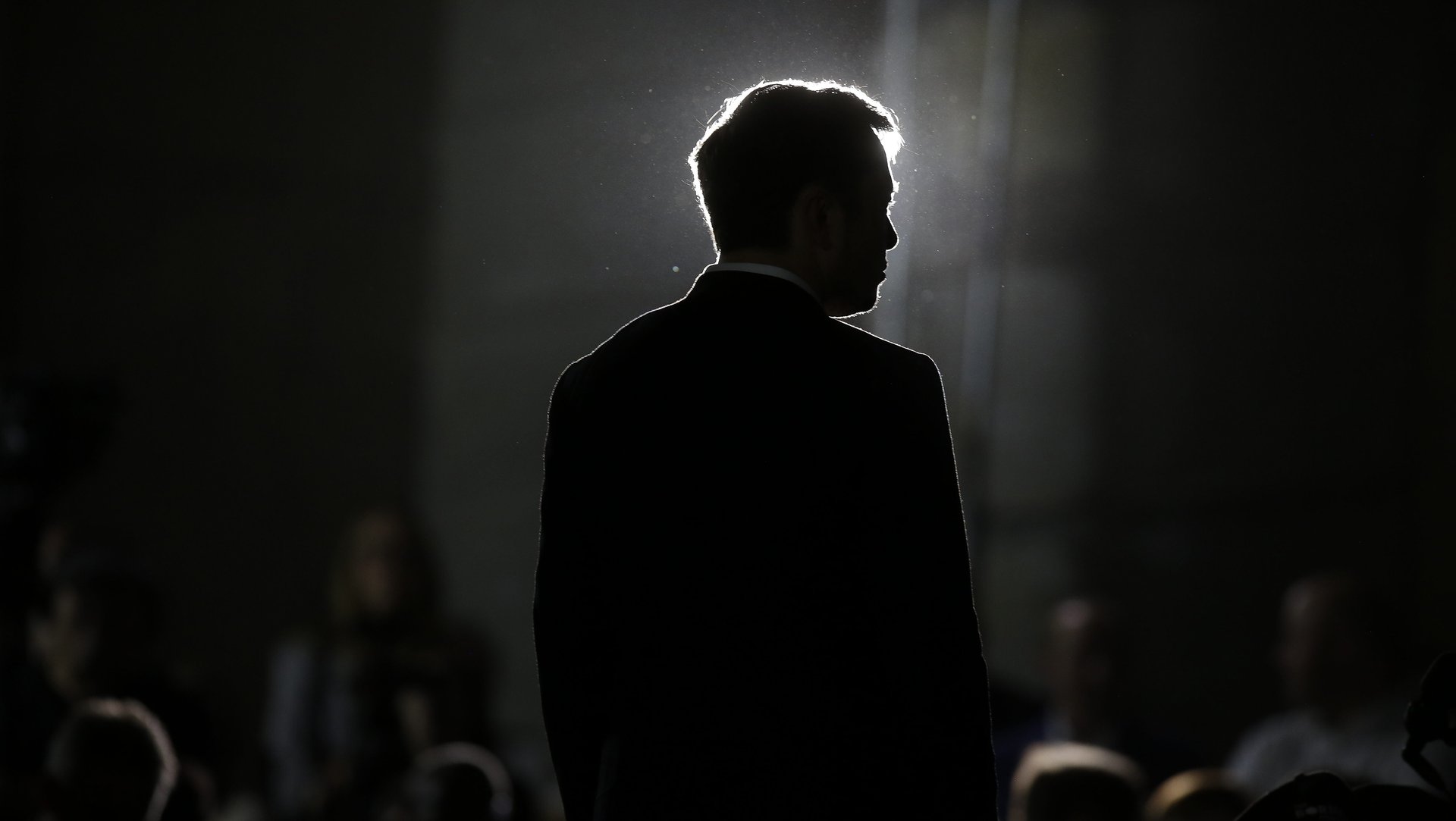The battle of who wants to own Twitter less
When Elon Musk first embarked on a collision course toward buying Twitter, he was talking about free speech—not money.


When Elon Musk first embarked on a collision course toward buying Twitter, he was talking about free speech—not money.
“Given that Twitter serves as the de facto public town square,” Musk tweeted on March 26, “failing to adhere to free speech principles fundamentally undermines democracy.”
As Musk hastily accumulated shares of the publicly traded social media company—flaunting federal reporting requirements in the process—Musk repeatedly bad-mouthed Twitter as a censorious and undemocratic entity. (Musk’s views on free speech are largely contradictory: As a private company, Twitter has its own speech rights and can largely moderate user-generated content as it sees fit.)
But now, Musk has soured on the deal. It might be that he’s grown tired of a momentary fixation, lost too much buying power in the market downturn, or realized he overpaid in this deal. Perhaps it is really about bots—perhaps.
On July 8, Musk filed to terminate the merger agreement and Twitter announced its intention to enforce the terms of the contract. And while there are many possible outcomes, it’s pitched the two sides against each other in a battle of trying to not own Twitter.
Elon Musk faces an uphill battle against Twitter in court
In a letter to Twitter (pdf) on July 8, Musk’s lawyers said that Musk is terminating the takeover agreement with Twitter because, they allege, Twitter made “false and misleading” statements about its user data.
In the months since Twitter accepted Musk’s deal on April 25, Musk has repeatedly claimed without evidence that Twitter is misrepresenting what percentage of its monetizable daily active users (mDAU) are automated bots or spam accounts. After claiming Twitter would not share necessary information about the bots with him, Twitter gave Musk access to its firehose—a stream of tweets and metadata about them that encompasses the 500 million tweets per day, according to The Washington Post.
In order to prevail in the Delaware Chancery Court, where Twitter plans to file a lawsuit against him, Musk needs to demonstrate that the company’s obfuscation about bots amount to a “material adverse effect,” which is a high legal standard to meet, Tulane Law professor Ann Lipton said in an email. “That’s a legal standard that would require a demonstration of a long-term, significant impact on Twitter’s earnings power, and so far he’s not provided any facts to demonstrate such an effect exists,” she said.
But the battle for Musk is uphill. Not only did he sign a binding agreement with Twitter, but he signed a contract that allows Twitter to sue for “specific performance.” That means that instead of merely suing for damages, in the case that Musk breaks the contract, Twitter can ask a judge to compel Musk to do what’s specifically outlined in the contract: forcing him to buy Twitter for $44 billion.
How will Musk and Twitter’s court battle end?
In a reply to Musk’s lawyers, Twitter’s lawyers asserted that the deal with Musk is not, in fact, terminated, and that the company will seek to complete Musk’s takeover.
There are a few ways this legal battle ends. The first two are through a settlement: Either Musk will agree to pay billions of dollars to be let out of the deal, or Twitter reworks the agreement to sell the company to Musk at a lower price.
If a lawsuit proceeds, there are three outcomes:
- Elon Musk wins, demonstrating Twitter lied about its user data and that it would have a material adverse effect on his ownership. He can walk away from the deal without paying Twitter any money.
- Elon Musk loses and is instructed to pay the $1 billion termination fee, as outlined in the contract.
- Elon Musk loses and is forced to buy Twitter for $44 billion.
Bloomberg columnist Matt Levine doesn’t think Musk has much of a case and believes these two options are both bad. “Letting the world’s richest person get out of a deal for a nominal fee because he got bored with it undermines the rule of law and the predictability of Delaware merger agreements,” he wrote in a July 11 column. “But forcing an unwilling buyer to own a big public company—with thousands of employees and an outsized influence on politics and culture—seems bad for the buyer, the employees, the users and the world. Nobody wants either of these outcomes.”
Levine prefers an extremely large settlement, but admits that a shareholder lawsuit will be extremely likely if Twitter does anything less than seek specific performance at $54.20 per share.
It’s not about bots. It’s about money.
Just a few months after it began, the deal that was never about money is now explicitly about money: Accounting for his own 9.2% stake, Musk might have to foot a $40 billion bill for something he doesn’t want to own anymore—and something many Twitter employees and users surely don’t want him to own.
Still, the Twitter board is seeking the money its shareholders are owed. So the stage is set: Twitter’s officers and Elon Musk will duke it out in court in the battle of who wants to own Twitter less.